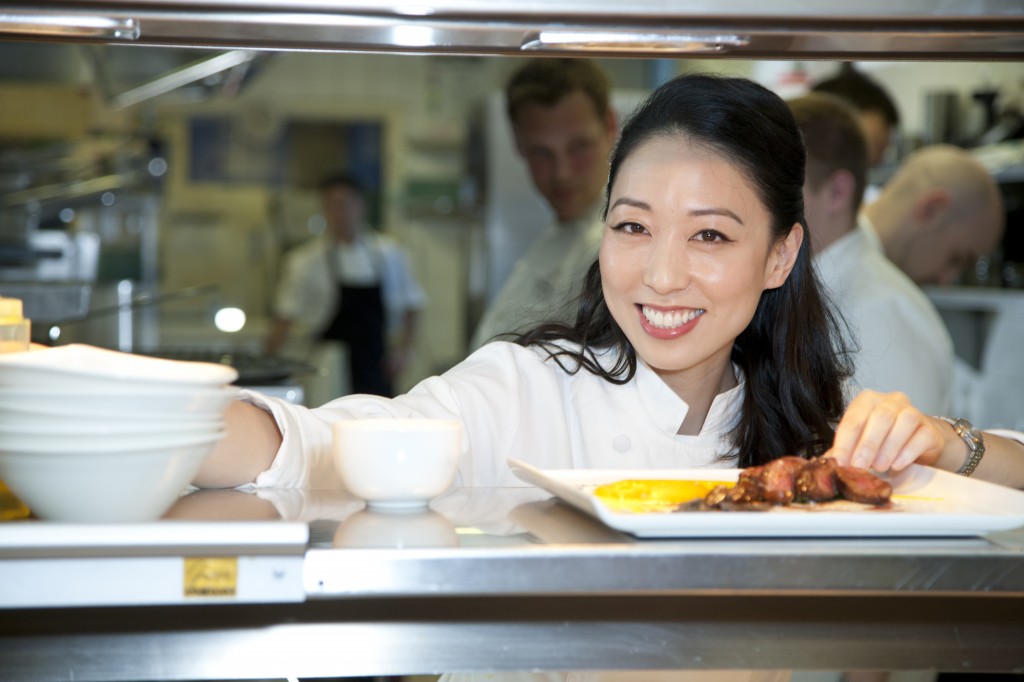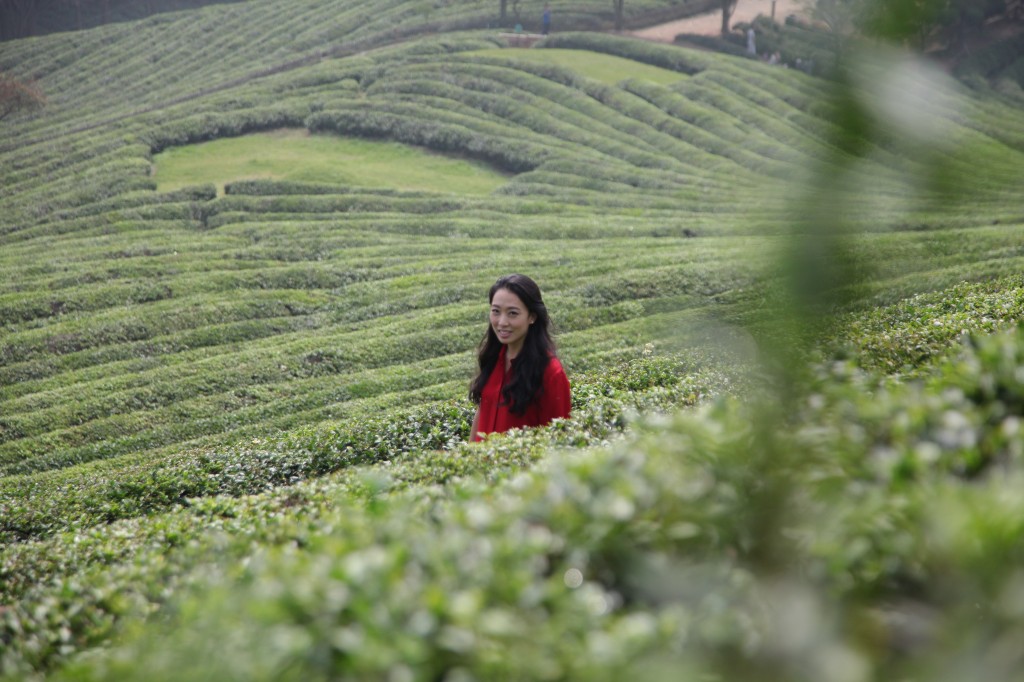- California Assembly OKs highest minimum wage in nation
- S. Korea unveils first graphic cigarette warnings
- US joins with South Korea, Japan in bid to deter North Korea
- LPGA golfer Chun In-gee finally back in action
- S. Korea won’t be top seed in final World Cup qualification round
- US men’s soccer misses 2nd straight Olympics
- US back on track in qualifying with 4-0 win over Guatemala
- High-intensity workout injuries spawn cottage industry
- CDC expands range of Zika mosquitoes into parts of Northeast
- Who knew? ‘The Walking Dead’ is helping families connect
Chef Judy Joo makes Korean food simple
By Tae Hong
Perilla leaves sprouting in the backyard garden, seaweed drying in the garage and tripe soaking in the laundry room were just the norm inside Judy Joo’s Summit, New Jersey home growing up.
“I have all these memories of [my mother] using our old baby bathtub because it was the largest plastic container that she had to make mandu fillings and kimchi,” Joo said. “It was really being resourceful and finding anything that you could in order to make it at home.”
A similar philosophy of homemade Korean cooking sits behind the 39-year-old chef’s show, “Korean Food Made Simple,” which began airing on the Cooking Channel in April.
The show, a 10-part series with a green light on a second season, is part-travelogue and part-instructional cooking. Joo draws inspiration from all corners of the country, both traditional and street fare, to take back to her own London kitchen, where she creates dishes that she describes as “easy, accessible and welcoming for the home viewer.”
Her essentials for a well-stocked kitchen — chili paste powder, chili paste (gochujang), bean paste (dwenjang), scallions, onions, sesame seed oil, garlic — are ingredients that will sound familiar to any fan of Korean grub.
Joo, who recently stepped down from her three-year run as the executive chef of the Playboy Club in London, has been seen as an iron chef on both “Iron Chef UK” and on “The Next Iron Chef.”
She drew attention in 2009 for her comparison of the Wall Street trading floor — where she worked after graduating from Columbia University’s engineering program — to the professional kitchen in a Wall Street Journal opinion piece.
Engineering was a decision she’d made because she had known of nothing else at the time, she said. Science had been her life, pushed on her by typical immigrant parents with dreams of high-flying, bragging-rights-giving careers for their children.
But New York was big, and opportunities for new experiences were aplenty. Internships at Goldman Sachs and Morgan Stanley, which sparked her skill set in quantitative math, led to a stint in the financial world.
Five years later, Joo, seeking another path once more, enrolled in the French Culinary Institute.
“You’re basically working in a chemistry lab [when cooking],” she said. “You control the variables, you’re doing experiments, everything behaves in a certain way based on what type of heat you apply to it, what type of ingredients used. That’s why cooking appeals so much to me.”
The job she landed out of the institute — working for the King of all Hell’s Kitchens, Gordon Ramsay, at his three-Michelin-starred London establishment of the same name — was as a commis chef: the bottom feeder.
“In my parents’ generation, being a chef wasn’t considered a real occupation,” she said. “It wasn’t anything that people who had real educations did.”
As Drake would put it, Joo started from that bottom — “You’re there to reproduce. You’re not there to think. It’s a production line. You’re not supposed to add any of your own touches, you’re not supposed to add any of your own input. You just say, ‘Yes, chef. Yes, chef. Yes, chef.’” — and now she’s here.
“Here” for Joo is many things. Here, as a successful celebrity chef whose appearances on TV as a strong female chef led to her own show on the Cooking Channel. Here, as an entrepreneur ready to open her first restaurant — Jinjuu, a fitting mirror of her given name, Joo Jin, and the word for “pearl” in Korean — in London. Here, as an author whose cookbook, inspired by the recipes on “Korean Food Made Simple,” will be released in 2015.
Seoul hasn’t escaped the influence of flavors and cuisine from around the world. As fusion dishes mix untraditional spices and ingredients a la bulgogi sliders or kimchi pasta, they’ve naturally become more Western-friendly. Her recipes are a combination of the two.
“Food is always evolving, and it’s really dynamic,” Joo said. “[For 'Korean Food Made Simple'], I’ve chosen dishes that are not scary to the Western palette or the Western viewer. So things that are recognizable, things that are inviting, and that people can look at and say, ‘Wow. That looks great,’ as opposed to picking it apart and being like, ‘What is that?’”
Jinjuu, the restaurant she and her team look to open in Soho, is an offshoot of the idea that Korean food can be hip, fashionable and modern.
All the while, she plans to continue on with the second season of “Korean Food Made Simple,” which she says is 100 percent adlibbed.
“All of the story is coming from me,” she said. “It’s my story, my heart, my history, my experiences and things that I’ve seen. It’s my point of view. It’s a very personal journey and show in terms of it being my dialogue.”


















Pingback: Chef Judy Joo - The Tig
kelly
November 25, 2017 at 4:00 PM
yes..I like the basic concepts behind Second Life but it seems incredibly outdated and when I played it was intensely non-intuitive / user friendly to an extent that made EVE look like a game for toddlers. thanks from
togel online